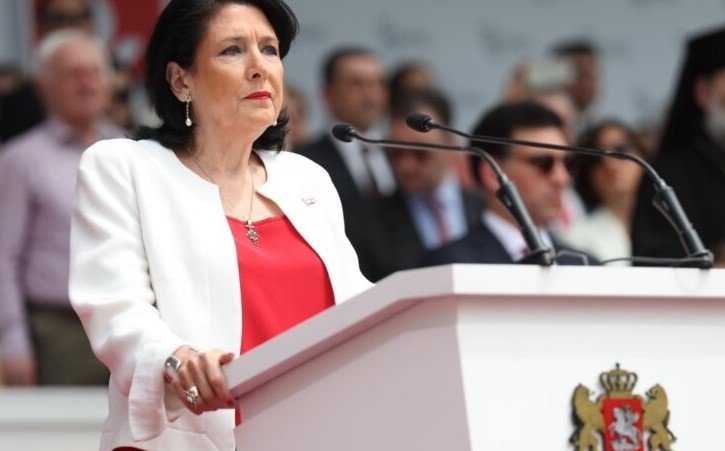In a decisive stand for democratic values, the President of Georgia has announced her intention to veto the contentious draft law “On Transparency of Foreign Influence.” This move underscores a significant clash between the executive branch and the legislative initiative that critics argue could distance Georgia from its European path.
A Presidential Stand for Democracy
The President’s decision to veto the draft law comes as a response to widespread concerns that it would impose undue restrictions on civil society and media. The law, which requires organizations receiving foreign funding to register as “agents of foreign influence,” has been met with criticism for potentially stifling free speech and democratic engagement.

In her address at a political forum for gender equality, the President emphasized the bill’s divergence from European values. She expressed a categorical opposition to the legislation, highlighting its potential to undermine Georgia’s commitment to democratic principles and European integration.
Legislative Tensions and European Relations
The announcement of the veto has heightened tensions within Georgian politics, particularly between the President and the ruling party, which has advocated for the law. The European Union has echoed the President’s concerns, recalling the government’s previous pledge to withdraw such legislation and warning of its implications for Georgia’s European aspirations.
The draft law’s proponents argue for its necessity in safeguarding national security. However, the President’s veto represents a significant hurdle, setting the stage for a potential parliamentary override or legislative revision.
The Path Forward: Implications and Expectations
The President’s veto is more than a procedural roadblock; it is a statement of intent regarding the direction of Georgian democracy. The coming days will be critical as the Parliament decides whether to attempt an override, amend the law, or accept the veto.
This development is a pivotal moment for Georgia, as it grapples with the balance between security and freedom, and the choice between aligning with European standards or pursuing a more insular legislative agenda.
